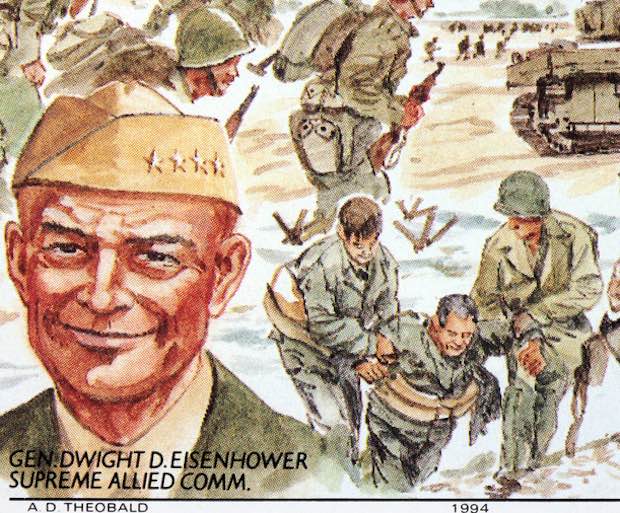Eisenhower and Interventionism

I’m overdue to follow up on my lament for the end of the Obama Administration, specifically with respect to foreign policy, and to respond to Daniel Larison’s cogent criticisms of that piece.
Precisely because I think Larison’s criticisms are cogent, I don’t feel the need to rebut them. President Obama has been anything but anti-interventionist, and specifically started at least one outright dumb war (against Libya) of the precise sort that he ran for office claiming he wouldn’t launch.
But I do want to defend my Eisenhower comparison a bit. Larison says:
While Obama’s foreign policy has been compared to Eisenhower’s by more than a few people, Obama has failed to do the one thing that clearly distinguishes Eisenhower from his predecessor and several of his successors: concluding the existing war(s) and avoiding new ones. This has supposedly been Obama’s preoccupation throughout his presidency, and he has often boasted about ending America’s foreign wars, but it hasn’t happened. He has not only failed to conclude the U.S. role in the war in Afghanistan, but has started at least two new military interventions and routinized the waging of perpetual, unauthorized war in many countries during both of his terms.
It’s a fair knock on Obama that he failed to end the war in Afghanistan (in fact, he began his first term by escalating it), but it’s worth recalling that Eisenhower was anything but an anti-interventionist. It was during the Eisenhower Administration that America conspired to overthrow the governments of Iran and Guatemala and to bring the Mobutu regime to power in the Congo. Eisenhower coerced the British and French into backing down during the Suez Crisis, but opposition to European imperialism was a longstanding American policy objective that in no way contradicted the aim of expanding American influence to replace those European powers – and, indeed, when Nasser failed to respond to the Suez decision with gratitude, Eisenhower explicitly brought the Middle East under the American security umbrella. It was under Eisenhower that SEATO was established, and under Eisenhower that the first American military personnel were dispatched to South Vietnam. And then there’s NSC document 162/2, the cornerstone of an approach to nuclear weapons that threatened the survival of civilization itself over questions of relative power between competing states.
In general, there was far more continuity between the Truman and Eisenhower approaches to the Cold War than discontinuity, something the Taft Republicans understood perfectly well. It nonetheless remains the case that Eisenhower was a more effective and more prudent Commander in Chief than either his predecessor or his successor, and even people who, at the time or retrospectively, disapproved of America’s Cold War commitments should recognize that fact. I suspect the same thing will prove true of the Obama Administration and critics of America’s expansive Global War on Terror (or whatever we’re calling it these days).
Comments